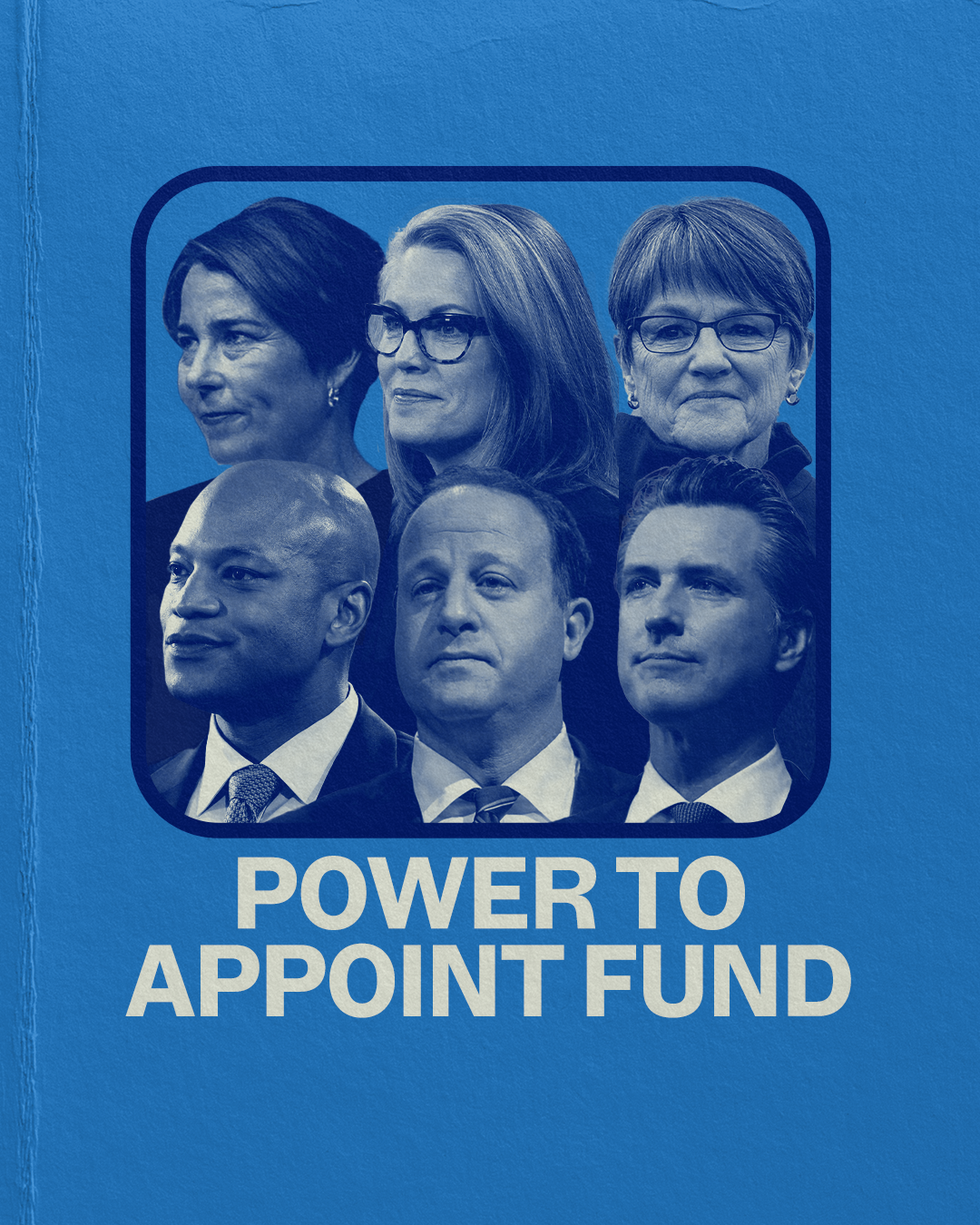
Can you donate now to join our fight?
We just launched the Power to Appoint Fund to highlight the important role Dem Govs play to ensure integrity in our country’s judicial process and protect fundamental freedoms. Your support will ensure we can make crucial investments in key states and protect our democracy. Please don’t wait: rush your gift to elect Democratic governors! >>>
Bad News For North Carolina And Missouri Republican Gubernatorial Candidates: Their Party Has Lost The Battle Over Medicaid Expansion.
Republicans have lost the argument over Medicaid expansion. But don’t take our word for it. The former head of the RGA said, “The battle has been fought and lost on Medicaid expansion.”
Republicans ran against Medicaid expansion in 2018 and lost. Now Gov. Kelly struck a deal with the Republican legislature to expand Medicaid this legislative session.
Republicans ran against Medicaid expansion in Louisiana in 2019 and lost. According to Zac McCrary, Louisiana Gov. John Bel Edwards’ lead pollster, no single issue was more important in driving the governor’s victory.
That spells trouble for state Rep. Holly Grange and Lt. Gov. Dan Forest in North Carolina and unelected Missouri Gov. Mike Parson, who all oppose Medicaid expansion.
Voters are fed up with the cruel Republican game of holding health care hostage for hundreds of thousands of their neighbors, placing rural hospitals on the brink of closure, and leaving billions of federal funding in health care for their state on the table.
Now Republicans in North Carolina and Missouri are walking into the same trap that made Republicans lose in 2018 and 2019. Best of luck!
Read more about how Republicans have lost the argument on Medicaid expansion:
The Washington Post’s Greg Sargent: Have Republicans lost the argument over the Medicaid expansion?
Earlier this month, it attracted almost no attention when Phil Cox, a former head of the Republican Governors Association and a well-known figure in Washington, said this:
“The battle has been fought and lost on Medicaid expansion.”
That’s a striking statement, coming from someone who previously ran the group that oversees efforts to elect Republican governors. And we now have more confirmation that this is a reasonable possibility. The Associated Press reports:
Kansas’ Democratic governor and a top Republican lawmaker on Thursday outlined a new proposal for expanding the state’s Medicaid program, breaking an impasse that had allowed a handful of GOP leaders to thwart bipartisan legislative majorities.
The plan from Democratic Gov. Laura Kelly and Senate Majority Leader Jim Denning would give Kelly the straightforward expansion of state health coverage that she has advocated, covering as many as 150,000 additional people. But Denning would get a version of a program that he has proposed for driving down private health insurance premiums to make it less likely people would drop existing private plans for Medicaid.
This is a Democratic governor, but Republican legislators are now participating in this compromise deal to expand Medicaid as part of the Affordable Care Act. And bipartisan majorities in both state legislative chambers now support the deal.
State GOP Senate leaders had kept it tied up in committee, but they had promised a debate this year. Republicans got some concessions — among them a program to refer recipients to jobs programs — and now there’s a deal, which means the expansion is all but certain to happen.
The backstory is important here: The former governor of Kansas — Republican Sam Brownback, who gained national notoriety for running the state budget into the ground with austerity policies — was ousted by Democrat Laura Kelly after she campaigned in part on a vow to expand Medicaid in the state.
Like other Democrats who have won statewide races by campaigning on the Medicaid expansion, Kelly emphasized that it would expand health coverage to thousands of working people — many people on Medicaid work — and would shore up hard-pressed hospitals, including in rural areas. That’s in a state that Donald Trump won in 2016 by more than 20 points.
We’ve seen this again and again. Democrat Andy Beshear was elected governor in deep red Kentucky (where Trump won by 30 points) in part on the issue. In Louisiana (where Trump won by 20), Democratic governor John Bel Edwards won reelection after a campaign in which no issue was more important, according to his pollster. It also played a big role in the Democrats’ total takeover of the Virginia state legislature.
On other fronts, in Missouri, Republican governor Mike Parson has announced that if a ballot referendum expanding Medicaid passes in 2020, he’ll carry out the proposal, even if he personally disagrees with it. In 2018, referendums passed in three deep-red states — Idaho, Nebraska and Utah — and the expansion has been adopted in all three.
Such referendums are another sign that it’s becoming harder for Republican legislators to stand in the way of voter support for the Medicaid expansion. After all, the logic of it is overwhelming: The federal government picks up almost the entire tab of expanding health care to enormous numbers of state officials’ own constituents.
“Voters are forcing the question at the ballot box as Medicaid emerges as a big issue in initiative campaigns and gubernatorial races,” Larry Levitt, executive vice president for health policy at the Kaiser Family Foundation, told me. “It’s getting harder for states to stand in the way of Medicaid expansion and all the federal money on the table as the symbolic barrier of Obamacare fades.”
In all, 37 states have now expanded Medicaid — many of them red — while 14 have not. It’s true that a handful of the biggest states — such as Texas, Florida, and North Carolina — still have not expanded Medicaid, and that’s a big obstacle to progress.
But in North Carolina, Democratic governor Roy Cooper — whose efforts to expand Medicaid have been tied up by Republican legislators — Cooper and Democrats are vowing to make the issue central in the 2020 statewide and legislative elections. If that produces more victories, that could portend another big breakthrough.
What’s becoming clearer is that Medicaid — which is sometimes stigmatized as “only” for poor people — has become a popular program, one that has touched the lives of far more people than you might have expected. A recent Kaiser poll found that 71 percent of Americans have been covered by Medicaid themselves or had a child covered, or have a friend or family member who participated in it.
The other day I asked whether Medicaid is starting to approach the political durability of two of the other major progressive welfare-state achievements of the 20th century — Medicare and Social Security. The news out of Kansas raises this question once again.
Republicans may be able to hold off the Medicaid expansion in some parts of the country — and it’s still possible that a continuing lawsuit against the ACA could wreak untold havoc. But the public argument over the expansion may be close to over.

